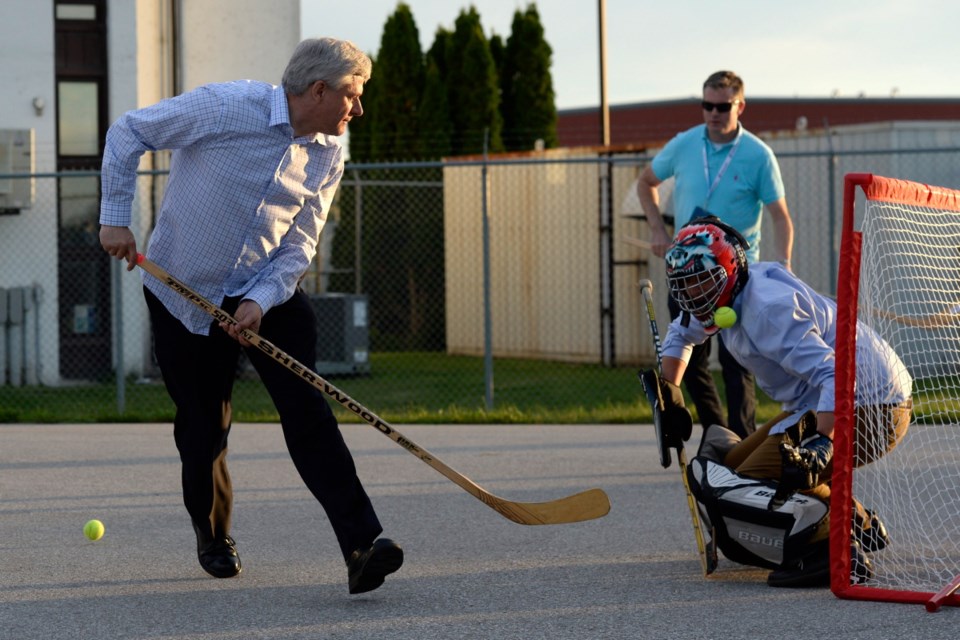OTTAWA — Battleground Ontario: starved for jobs, but swimming in votes.
Hardly surprising, then, that the three main federal leaders found themselves using the province’s ailing manufacturing sector as a backdrop Wednesday for a one-day clash of economic visions.
Stephen Harper, Justin Trudeau and Tom Mulcair all focused their campaigns in southern Ontario’s manufacturing heartland, where one of the country’s most powerful economic engines has been sputtering for years.
Harper spoke for nearly an hour in a controlled question-and-answer session with the Ontario Chamber of Commerce, one of his favourite public event formats for burnishing his credentials as an steward of the economy.
Harper fielded a series of soft, policy-laden questions as he attacked the economic bona fides of both the Trudeau Liberals and Mulcair’s New Democrats.
“I will tell you this right now, looking at Ontario, looking at Alberta … if we get a high-tax Liberal or NDP government federally that will be absolute disaster for this country,” Harper said in Welland, Ont., to partisan applause.
In Niagara Falls, Mulcair made a five-year, $90-million spending pledge for the federal automotive supplier innovation program. “It’s time to get good-paying auto manufacturing jobs back to these communities,” he said at an auto parts factory.
But Mulcair continued to face pressure to explain how he would balance next year’s budget with a menu of big-ticket campaign promises, and which ones he would forgo if necessary to make it happen.
Among other things, the NDP has promised to create one million $15-a-day child-care spaces, which carries a $5-billion annual price tag once fully implemented after eight years.
In Toronto, Trudeau said a Liberal government would allow Canadians to repeatedly dip into their registered retirement savings to pay for a home. Current rules only permit a single withdrawal for first-time home buyers.
Trudeau said allowing access to RRSPs to buy a home “is something that will help Canadians in concrete ways.”
But it was Trudeau’s remarks in a CBC interview the night before — “a large percentage of small businesses are actually just ways for wealthier Canadians to save on their taxes,” he said — that attracted the most lightning from his two main rivals.
“I mean, seriously — seriously,” an incredulous Harper said. “Small- and medium-sized business is the backbone of this economy and that’s why we’re going to keep taxes down and strengthen small business in this country.”
While releasing her party’s platform Wednesday in Vancouver, Green Party Leader Elizabeth May predicted an important role for her Greens after the Oct. 19 vote.
“A minority Parliament can be a four-year period of respectful, deliberative, productive work for the people of Canada, or it can be a year or two of hyper-partisan squabbling and bickering,” May said in Vancouver.
“The difference between those choices is how many Green members of Parliament are elected to work across party lines to give Canadians the government they want.”



